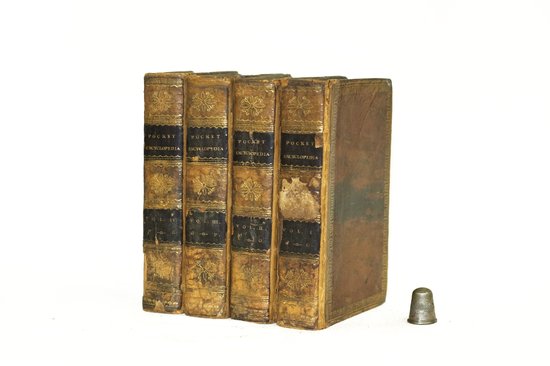Narrative
Knowledge Generation
1. The Shepherd of Banbury’s Rules to Judge of the Changes of the Weather (London: Waller, 1748) by John Claridge provides a ‘rational’ account of an aspect of life that affects all, supposedly teaching people to know the weather ‘for several days to come, and in some cases for months’ as well as ‘the causes of such alternations, the nature of wine, rain, snow, &c.’ A similarly useful book, Mr. Hoppus’s Measurer (London: Rivington et al., 1790) by E. Hoppus, was published many times. Such works provide two early examples of ‘general knowledge’ literature of practical interest to a range of readers, but particularly so to those who work outside or with their hands. One extension of these specific works is the encyclopedia or dictionary, a general reference book collecting a vast amount of general knowledge on a variety of subjects in one or more volumes. The earliest example in the Popular Romanticism database is volume one of the Pocket Encyclopedia or a Dictionary of Arts, Sciences, and Polite Literature: Compiled from the Best Authorities (London: Longman, Hurst, Rees, Orme and Co., Harris, Scatcherd and Letterman, Peacock and Bampton, Wilkie and Robinson, and Baldwin, 1811) by Edward Augustus Kendal. The next four examples describe variations in price, format and content among such works.














